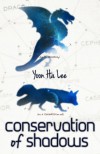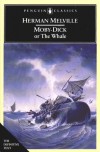Currently reading
Buzz by Thor Hanson

I liked this book about bees, but I should point out that I know basically nothing about bees so all of the information that was new to me in this book may be old hat to those of you who actually have an interest in them. I suspect that if you've been inclined to open more scholarly tomes about bees you won't find much of interest here. This is definitely not a scholarly tome.
At first I thought that this book would escape my criticism of what passes for general science books, but although it does much, much better than some of the books that have inspired one- and two-star rants from me, it still reads more like a series of magazine articles, complete with descriptions of people like:
With tanned features and a perpetual, blue-eye squint, he certainly looked like someone very much at home in the desert.
(p 168)
and,
Wearing a floppy sun-hat and tinted glasses, with his snow-white beard cropped short, he looked something like Santa Claus on vacation—assuming the old elf spent his off-season in California doing a lot of hiking.
(p 176)
Sometimes descriptions like these work, but they started standing out to me more and more once I realized he did it all the time. And there are a lot of people who get introduced to the reader. Really, I'd say that this book is more about the people who work to study and use bees than the bees themselves.
Sometimes the humour works well, like in the update I posted, and sometimes it falls flat, like when the origin of the phrase Doh! is discussed on page 105:
The Oxford English Dictionary traces the origin of the expression "Duh!" to a Merry Melodies cartoon from 1943. The similar time "Doh!"—popularized by Homer Simpson—got its start on a BBC radio program a few years later. Either phrase would have been appropriate for me in that forehead-slapping moment.
Just a lot of filler, really. I'd also count many of the author's asides with his son as unnecessary filler. If you do decide to read this book, be prepared to be a subjected to a series of Noah's bee-capades as he grows up. They're related to bees and what is discussed in what I'd consider the "main" text, but the way they're presented makes them feel like they're being used to flesh out a rather thin volume on bee facts—and this isn't a long book. For that reason, I'm nominating this book for Task 3 for Door 9 (Thanksgiving): Name a book you’ve read this year that you thought was full of “stuffing”.
Oh, and at one point, to illustrate how dependent humans are on bees for helping to pollinate our food, the author describes how he got up early to be able to go to McDonalds to order a Big Mac for lunch but disassemble and dissect it to take out anything whose production may have been helped by bees. He actually took a picture of the result, but I was left wondering, why ruin your lunch when you could just use the burger as a point of discussion? Admittedly, I was also wondering who still went to McDonalds in 2018, since that also seemed somewhat odd.
Previous updates:
35 of 216 pages (asking an ornithologist about chickens)
 3
3














